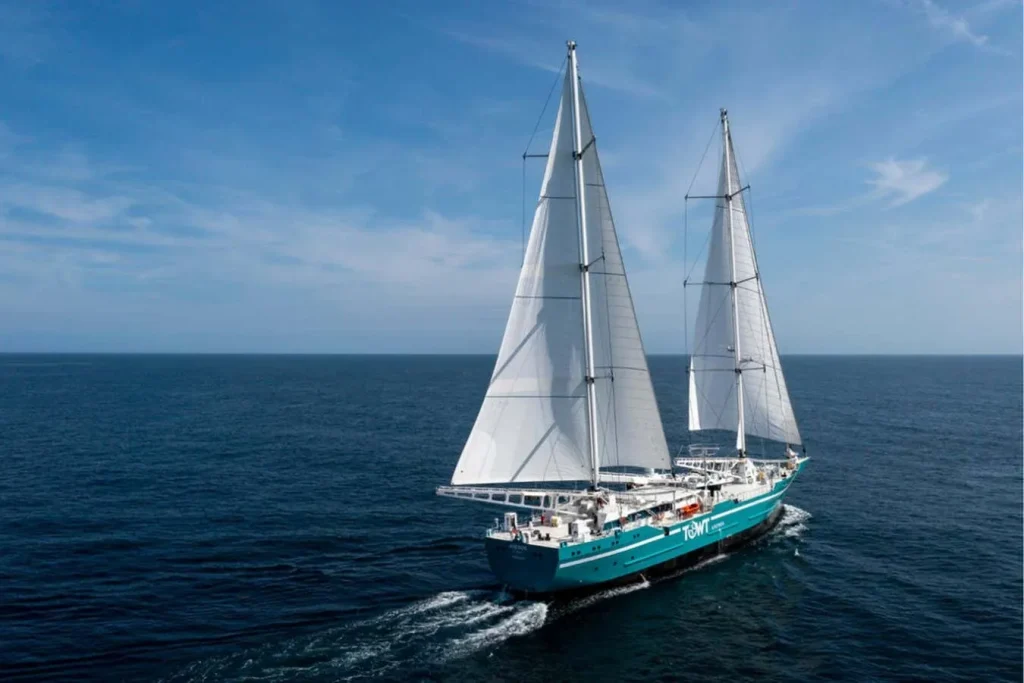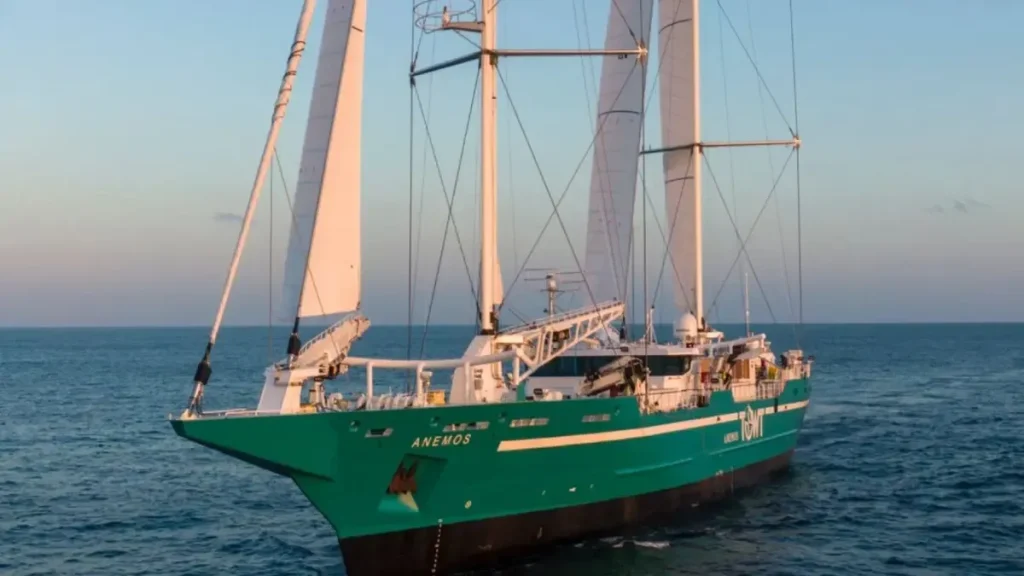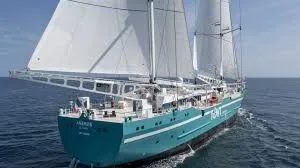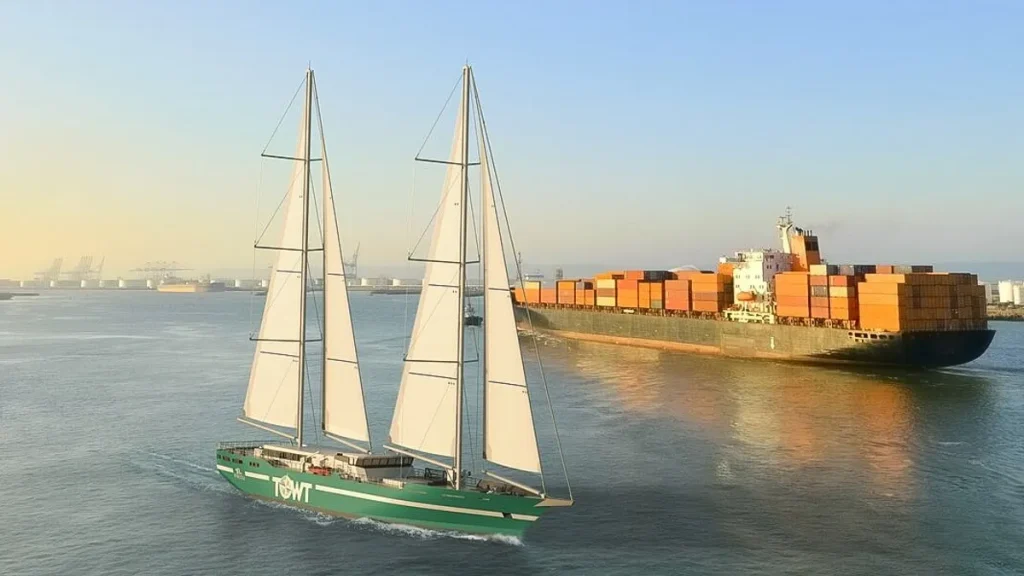The world’s largest cargo ship, Anemos, has embarked on its inaugural voyage across the Atlantic, marking a significant milestone in sustainable shipping. Departing from France in early August, Anemos is set to deliver 1,000 tonnes of cognac and champagne to New York by tomorrow. This modern vessel boasts a carbon footprint that is only 10% of that produced by standard container ships.

Cutting-Edge Technology and Environmental Benefits
Anemos, measuring 81 metres in length, utilises advanced wind-assisted propulsion technologies (WAPS). Unlike traditional cargo ships, it operates with minimal human intervention, relying on automated systems and a rigging design crafted through computer simulations. This allows the ship to transport one tonne of cargo over a kilometre with less than 2 grams of carbon emissions—significantly lower than the 20 grams per tonne per kilometre emitted by conventional container ships.

Innovative Approach to Wind Propulsion

According to the CEO of TOWT, the French company behind Anemos, advancements in satellite communication and routing technology have made wind a dependable source of propulsion. The ship sails at an approximate speed of 19 kilometres per hour, with potential for faster speeds under different conditions. Anemos is part of a broader initiative to develop eight vessels capable of carrying a total of 200,000 tonnes of cargo globally, potentially reducing carbon emissions by an estimated 40,000 tonnes.
Industry Impact and Future Outlook
While the full environmental impact of wind-assisted cargo ships is still being assessed, a recent report by Lloyd’s Register has highlighted the lack of standardised criteria for validating carbon savings. Despite this, the report predicts that 100 vessels will incorporate wind propulsion within the next few years.

Gavin Allwright from the International Windship Association emphasises the importance of these advancements, stating that they are crucial for achieving net-zero emissions in the shipping industry. He notes, “The development of vessels like Anemos is vital for providing zero or ultra-low emissions options for cargo owners today.”
